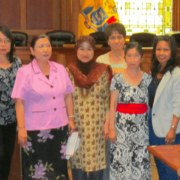CALIFORNIA Governor Jerry Brown has pledged $50 million to reward college campuses with creative, cost-effective approaches to getting more students to graduate with degrees faster, going on his promise to help public colleges and universities better adapt to the 21st century.
A seven-member committee chaired by Brown’s finance director is scheduled to name the winners of the California Awards for Innovation in Higher Education later this month.
Fifty-two schools—including eight University of California campuses, 18 California State University (CSU) system schools, and 26 community colleges—are competing for the recognition. To be eligible, schools had to submit applications describing the steps they have been taking to increase the number of students who earn bachelor’s degrees within four years, and to make it easier to those who start their studies at two-year colleges to finish at four-year universities.
The winning proposals will also need to show potential for statewide replication.
The one-time prize money, which finance staff is recommending to award in increments of at least $2.5 million, accounts for just a tiny fraction of the $14.5 billion California is spending on higher education this year.
Bob Shireman, executive director of the college advocacy group California Competes, said the award money nonetheless gives campuses an incentive to adopt the kinds of programs and policies that Brown has been supporting.
“It’s pretty unusual for government to have this kind of prize money out there,” said Shireman, a former deputy undersecretary in the U.S. Department of Education. “The backdrop is the debate over higher education funding in California and the governor’s perspective that higher education always wants more money and isn’t focused on how it can do things more efficiently … This is his effort to try to point to that issue and encourage a different approach.”
California Competes and give other groups are hosting a forum Monday in Sacramento where representatives from most of the competing campuses will have three minutes each to present their ideas in “lightning round-style” to an audience of business leaders, elected officials, and members of the committee who will judge the entries.
The initiatives under consideration broadly cover aspects of college live, from intensive counseling early on to replacing expensive textbooks with e-books and online materials, and even targeting high school students for advance outreach and preparation.
Shireman’s organization asked 15 outside experts to review the applications in advance. Ideas that piqued their interest included a partnership between San Francisco City College and San Francisco State, creating small learning communities that give students more support during their first two years of college and a clear path to transferring; Fresno State equipping students with tablet computers for courses that have been designed around the devices; and University of California, Irvine’s effort to persuade more students to take courses online and during the summer.
(With reports from ABC, Associated Press)
(www.asianjournal.com)
(LA Midweek March 11-13, 2015 Sec. A pg.1)







